10 Best Herbal Capsules For Strep Throat

Herbal capsules for strep throat are a popular alternative to conventional antibiotics, often containing ingredients like echinacea, goldenseal, and garlic, which are believed to have antimicrobial and anti-inflammatory properties.
These natural remedies are marketed as a way to support the immune system and alleviate symptoms such as sore throat and swollen tonsils. While some studies suggest that certain herbs may reduce the severity of throat infections, their effectiveness in treating strep throat specifically remains inconclusive. It's important to consult a healthcare provider before using herbal capsules, as they may interact with other medications or not be suitable for individuals with underlying health conditions.
Despite their popularity, herbal treatments should not replace professional medical care, especially for bacterial infections like strep throat that require antibiotics.
Table of Contents
- 1. Echinacea (Echinacea purpurea)
- 2. Thyme (Thymus vulgaris)
- 3. Ginger (Zingiber officinale)
- 4. Black elderberry (Sambucus nigra)
- 5. St. john's wort (Hypericum perforatum)
- 6. Licorice (Glycyrrhiza glabra)
- 7. Stinging nettle (Urtica dioica)
- 8. Salvia (Salvia officinalis)
- 9. Rosemary (Rosmarinus officinalis)
- 10. Ceylon cinnamon (Cinnamomum zeylanicum)
1. Echinacea (Echinacea purpurea)

Echinacea purpurea herbal capsules are commonly used as a natural remedy to support the immune system and may help alleviate symptoms of strep throat.
These capsules contain concentrated extracts of the purple coneflower, which is traditionally believed to have antimicrobial and anti-inflammatory properties. While some studies suggest that echinacea might reduce the duration and severity of colds, its effectiveness specifically for strep throat is still under investigation. It is often used as a complementary therapy alongside conventional treatments, but it should not replace prescribed antibiotics for bacterial infections like strep throat.
As with any herbal supplement, it is important to consult a healthcare provider before use, especially for individuals with allergies or those taking other medications.
2. Thyme (Thymus vulgaris)
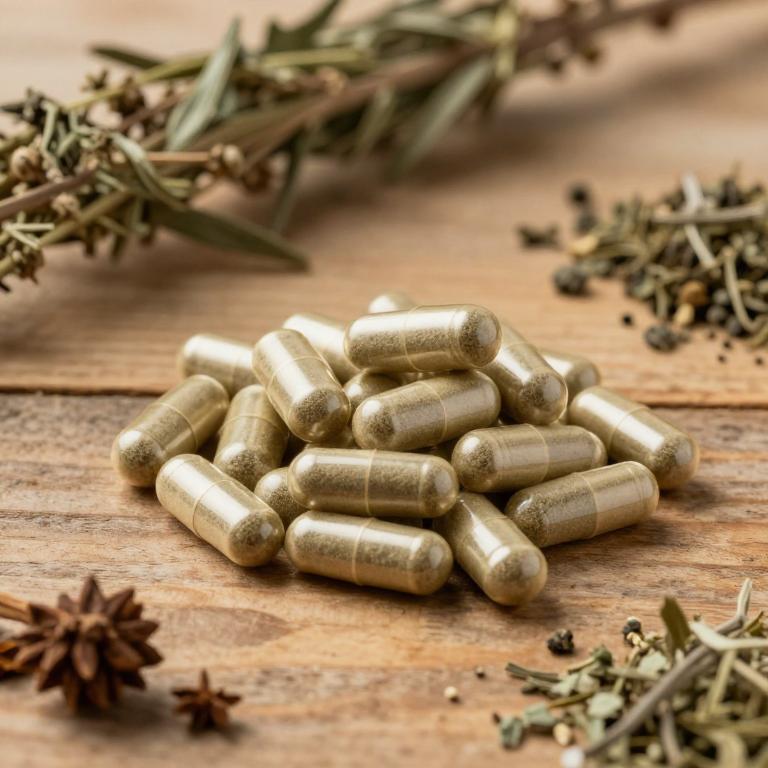
Thymus vulgaris herbal capsules, derived from the common thyme plant, are often used as a natural remedy for supporting immune function and alleviating symptoms of strep throat.
These capsules contain essential oils and phytochemicals, such as thymol and carvacrol, which possess antimicrobial and anti-inflammatory properties. They may help reduce throat irritation, ease swallowing, and support the body's ability to fight off bacterial infections like streptococcus. While not a substitute for antibiotics in severe cases, thymus vulgaris can serve as a complementary therapy to enhance recovery.
As with any herbal supplement, it is advisable to consult a healthcare provider before use, especially for individuals with existing medical conditions or those taking other medications.
3. Ginger (Zingiber officinale)

Zingiber officinale, commonly known as ginger, has been traditionally used for its anti-inflammatory and antimicrobial properties, making it a potential natural remedy for strep throat.
Herbal capsules containing ginger extract may help alleviate symptoms such as sore throat and inflammation by reducing swelling and inhibiting bacterial growth. While ginger is generally safe for most people, it should not replace prescribed antibiotics for bacterial infections like strep throat. Some studies suggest that ginger's active compounds, such as gingerol and shogaol, may support immune function and reduce pain.
However, it is important to consult a healthcare provider before using ginger supplements, especially if you are taking other medications or have underlying health conditions.
4. Black elderberry (Sambucus nigra)
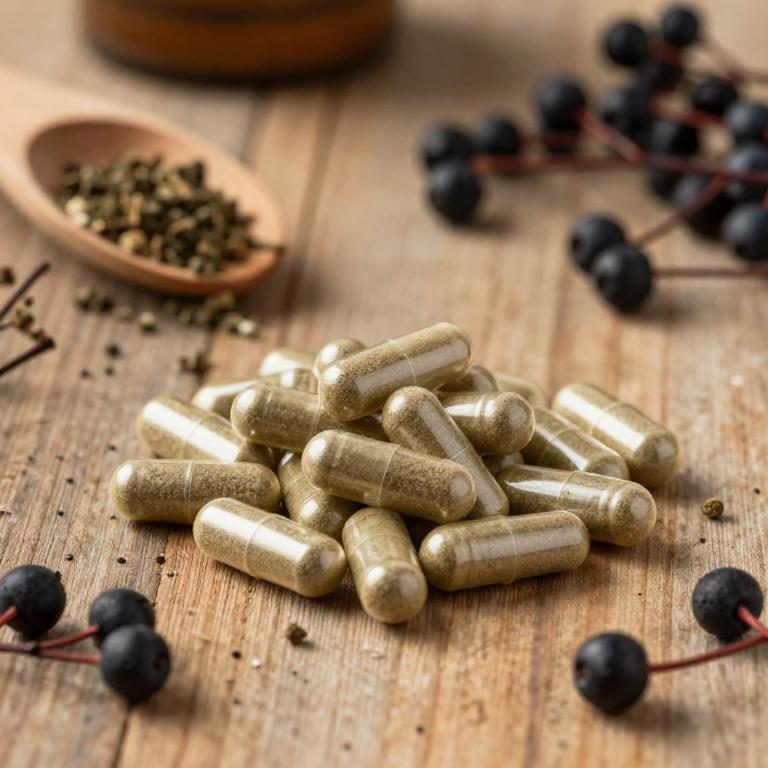
Sambucus nigra, also known as elderberry, is commonly used in herbal formulations to support immune function and may help alleviate symptoms of strep throat.
While it is not a substitute for antibiotics in bacterial infections like strep throat, some studies suggest that its antioxidant and anti-inflammatory properties can reduce throat inflammation and ease discomfort. Herbal capsules containing Sambucus nigra are often taken as a complementary therapy to support the body's natural defenses during an infection. However, it is important to consult a healthcare provider before using elderberry supplements, especially if symptoms persist or worsen.
As with any herbal remedy, proper dosage and quality of the product are essential to ensure safety and effectiveness.
5. St. john's wort (Hypericum perforatum)

Hypericum perforatum, commonly known as St. John's Wort, is a herbal remedy that has been traditionally used for its potential anti-inflammatory and antimicrobial properties.
While it is more widely recognized for its use in treating mild depression, some preliminary studies suggest it may have antibacterial effects that could be beneficial in managing strep throat. However, it is important to note that there is limited scientific evidence supporting its efficacy specifically for strep throat infections. As with any herbal supplement, hypericum perforatum may interact with other medications and should be used under the guidance of a healthcare professional.
For severe or persistent strep throat, it is recommended to seek conventional medical treatment, such as antibiotics, rather than relying solely on herbal remedies.
6. Licorice (Glycyrrhiza glabra)

Glycyrrhiza glabra, commonly known as licorice root, has been traditionally used for its anti-inflammatory and antimicrobial properties, making it a popular herbal remedy for conditions like strep throat.
When formulated into capsules, glycyrrhiza glabra can help soothe irritated throat tissues and reduce swelling, offering relief from the discomfort associated with strep throat infections. The active compounds in licorice root, such as glycyrrhizin and flavonoids, may inhibit the growth of bacteria and viruses that contribute to throat infections. However, long-term use of licorice root capsules can lead to side effects like increased blood pressure due to its effect on the adrenal glands.
As a complementary therapy, glycyrrhiza glabra capsules may support conventional treatments for strep throat, but it is important to consult a healthcare professional before use.
7. Stinging nettle (Urtica dioica)

Urtica dioica, commonly known as stinging nettle, has been traditionally used for its anti-inflammatory and antimicrobial properties.
Urtica dioica herbal capsules may offer natural support for individuals suffering from strep throat due to their potential to reduce throat inflammation and inhibit bacterial growth. While scientific research on its direct efficacy against Streptococcus bacteria is limited, some studies suggest that its high concentration of antioxidants and polyphenols may contribute to immune support. These capsules are typically taken orally and may be used as a complementary therapy alongside conventional treatments.
As with any herbal supplement, it is important to consult with a healthcare provider before use, especially for those with existing medical conditions or taking other medications.
8. Salvia (Salvia officinalis)
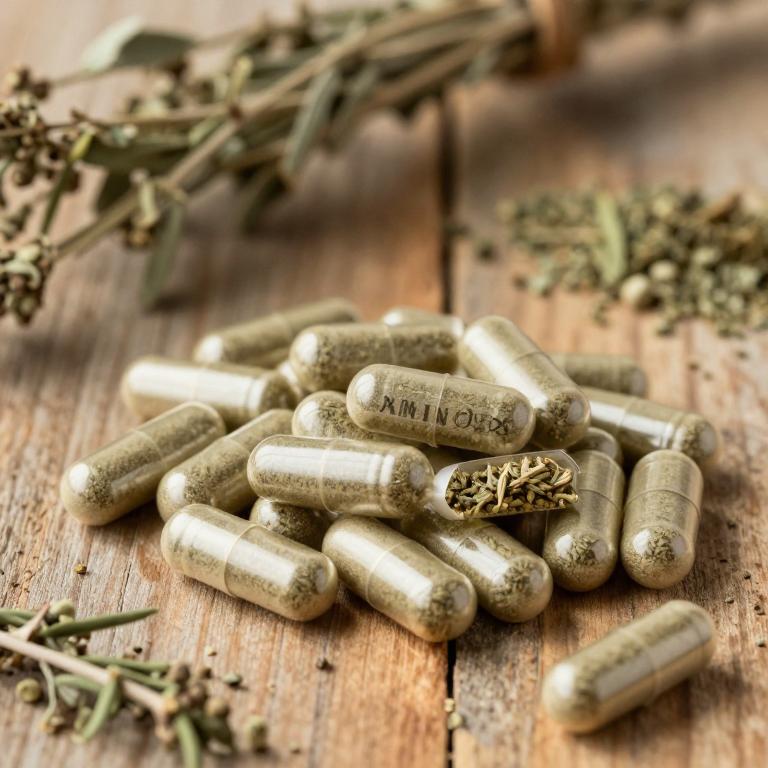
Salvia officinalis, commonly known as sage, has been traditionally used for its antimicrobial and anti-inflammatory properties, making it a potential natural remedy for strep throat.
Herbal capsules containing salvia officinalis are often used to soothe sore throats and reduce symptoms such as pain and inflammation. While some studies suggest that sage may help inhibit the growth of bacteria, including streptococci, more research is needed to confirm its effectiveness against strep throat specifically. These capsules are typically taken orally, often in conjunction with other remedies like warm water with honey or throat lozenges.
It is important to consult a healthcare provider before using sage capsules, especially for severe or persistent strep throat infections.
9. Rosemary (Rosmarinus officinalis)
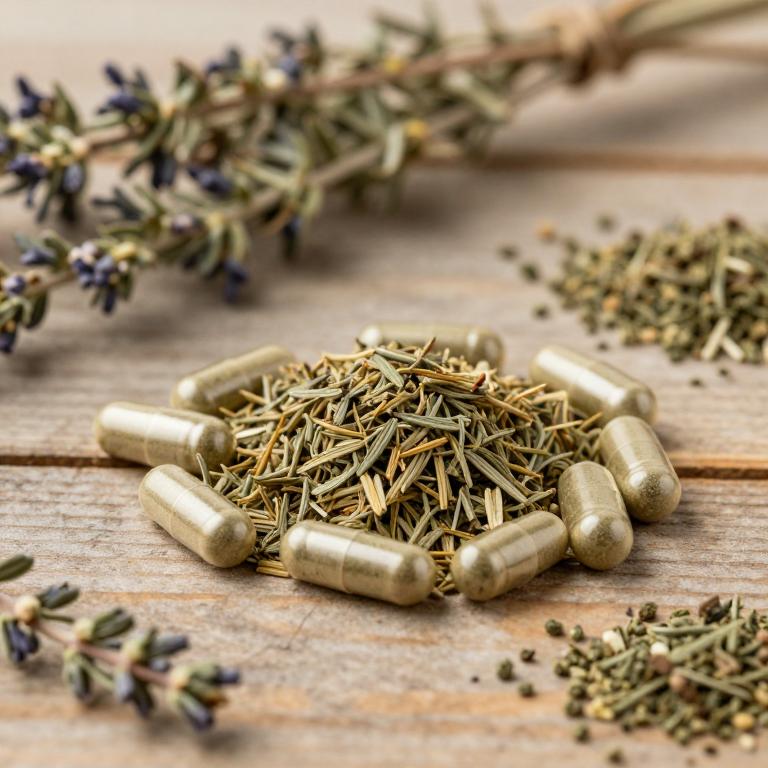
Rosmarinus officinalis, commonly known as rosemary, has been traditionally used for its antimicrobial and anti-inflammatory properties, making it a potential natural remedy for strep throat.
Rosemary herbal capsules contain essential oils and bioactive compounds such as rosmarinic acid, which may help reduce throat inflammation and inhibit the growth of bacteria. While scientific evidence supporting its efficacy against strep throat is limited, some studies suggest that rosemary may support immune function and alleviate symptoms like soreness and irritation. It is often used as a complementary therapy alongside conventional treatments, though it should not replace prescribed antibiotics for bacterial infections.
As with any herbal supplement, it is important to consult a healthcare provider before use, especially for individuals with allergies or those taking other medications.
10. Ceylon cinnamon (Cinnamomum zeylanicum)
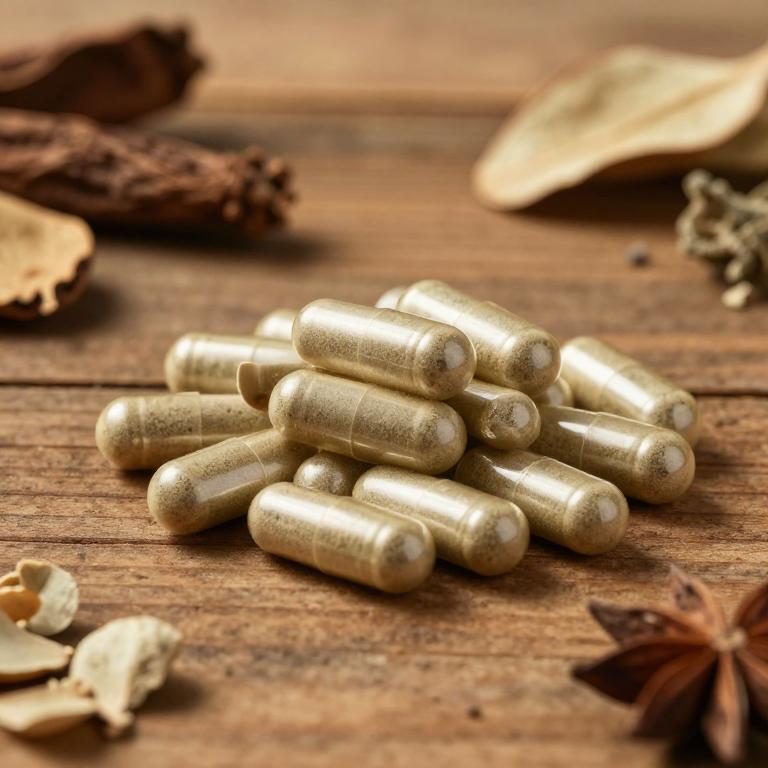
Cinnamomum zeylanicum, commonly known as cinnamon, is often used in herbal capsules to support the treatment of strep throat due to its antimicrobial and anti-inflammatory properties.
The essential oils in cinnamon, particularly cinnamaldehyde, have been shown to inhibit the growth of bacteria, including Streptococcus pyogenes, which causes strep throat. These herbal capsules may help reduce symptoms such as sore throat, inflammation, and pain by soothing the throat lining and boosting the immune response. While cinnamon is generally safe for most people, it is important to consult a healthcare professional before using it as a complementary treatment, especially for persistent or severe infections.
Overall, cinnamon herbal capsules can be a natural and supportive option for managing strep throat when used alongside conventional medical care.